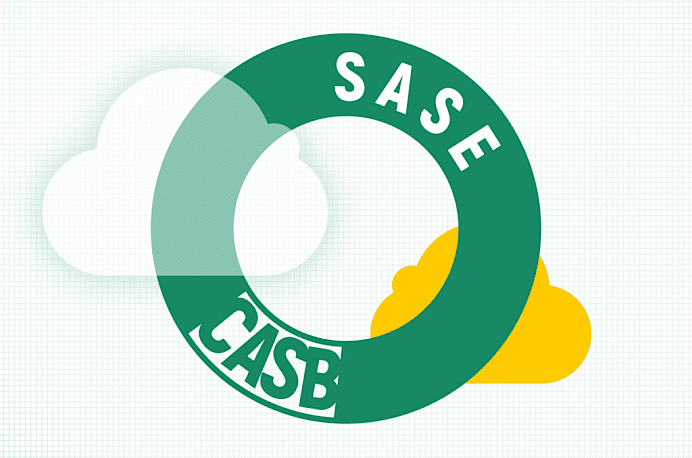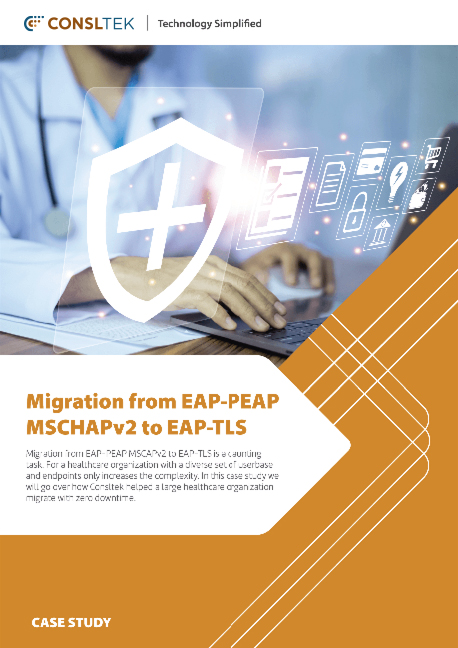- CASB Unveiled: Your Digital Hospital Guardian
- The Cybersecurity Conundrum
- Alarming Statistics
- The Security of Your Medical Data
- The Dire Consequences
- CASB Implementation – Strengthening Your Hospital’s Digital Armor
- Scenarios of Use: CASB in Hospitals
- Scenario 1: CASB Resilience
- Scenario 2: CASB Trust and Data Confidentiality
- Scenario 3: CASB Renaissance of Security
- Unleashing CASB for Hospital Cybersecurity
- Unveiling Cato SASE Cloud for Hospital Cybersecurity
Introduction: The Cybersecurity Battlefield in Hospitals

Imagine a serene hospital scene, patients resting, and healthcare professionals working diligently. It appears tranquil, doesn’t it?
However, in healthcare, an intense battle rages on—the battle against cyberattacks. Hospitals, where patient data is as valuable as life itself, have become primary targets for cybercriminals.
Let’s explore healthcare cybersecurity and unveil why it resembles a battlefield.
The Stealthy Invaders
Do you believe cyberattacks only affect large corporations? Think again.
Hospitals constantly face assaults from hackers aiming to pilfer patient records or disrupt vital medical services.
Have you ever wondered about the staggering number of attacks hospitals confront daily? We’re about to uncover the astonishing truth.
The Lifeblood of Hospitals
Patient records, treatment plans, and sensitive medical data form the core of healthcare institutions.
Losing them to a cyberattack could be catastrophic. Picture your medical history in the hands of the wrong people. We’ll discover the dire need for robust cybersecurity measures within hospitals.
CASB: The Digital Guardian
Now, enter the hero of our narrative: Cloud Access Security Brokers (CASB).
These digital protectors position themselves between hospitals and the ceaseless barrage of cyber threats. But what precisely is CASB, and how does it operate? Join us on this voyage as we demystify CASB’s role in safeguarding healthcare establishments.
In the subsequent section, we’ll peel back the layers of CASB and reveal its secrets. Are you prepared to stand against cyber villains?
CASB Unveiled: Your Digital Hospital Guardian

What’s CASB, Anyway?
Imagine your favorite superhero, the one that protects the city from villains.
CASB is like that hero for hospitals, but in the digital world.
It’s short for Cloud Access Security Broker, and it’s here to keep our hospital’s digital treasures safe.
Your Digital Guardian
Hospitals are like castles filled with valuable information. They have patient records, research, and all sorts of important data. Now, CASB steps in as the ultimate guardian, ensuring that no sneaky cyber villains can break in.
Think of CASB as a digital shield, safeguarding the hospital’s data from any harm. It’s like a knight protecting a castle from invaders.
Imagine a group of cybercriminals as the bad guys in a video game. They’re trying to break into the hospital’s digital fortress, using all their tricks and traps.
CASB to the Rescue
Just when things look grim, CASB springs into action like a superhero. It has powers like encryption, threat detection, and access control. It’s like having a powerful force field around the hospital’s data.
CASB can see through the cyber villains’ tricks and stops them in their tracks. It’s a battle of wits and technology, and CASB is determined to win.
Victory for CASB
In the end, CASB stands tall as the digital hero. It protected the hospital’s data and kept it safe from harm. The cyber villains are left scratching their virtual heads, while our hospital remains a fortress of security.
So, remember this digital guardian, CASB. It’s the unsung hero that ensures our hospitals can keep saving lives without worrying about cyber threats.
The Cybersecurity Conundrum

Get ready to secure your virtual headgear because the statistics we’re about to reveal will leave you astounded!
Alarming Statistics
Did you ever fathom that between March 2021 and February 2022, a staggering 42 million healthcare records faced exposure, theft, or compromise?
That’s akin to the entire population of California having their medical secrets laid bare for the world to scrutinize.
The Security of Your Medical Data
Now, let’s get into the safety of your personal medical information.
How confident are you when you consider that it resides in the digital realm, susceptible to potential cyberattacks?
It’s like having a treasure chest filled with your most intimate details and trusting it to be secure in a room teeming with crafty thieves.
The Dire Consequences
Hold on tight because there’s more to this story!
The aftermath of healthcare data breaches extends far beyond mere numbers. It strikes where it hurts the most.
Healthcare institutions may endure financial chaos due to hefty fines, forensic investigations can transform hospitals into crime scenes, and patients’ trust in their healthcare providers can crumble faster than a house of cards.
So, how genuinely secure is your medical data? It’s a question worth pondering because, in this digital era, your health secrets are just a few clicks away from potential chaos.
CASB Implementation – Strengthening Your Hospital’s Digital Armor

You’ve decided to fortify your hospital’s defenses by implementing Cloud Access Security Brokers (CASB).
In this section, we’ll guide you step by step through the process while highlighting best practices and potential pitfalls. Are you ready to safeguard your hospital’s valuable data?
Assess and Plan
Before you leap into action, assess your hospital’s current IT infrastructure.
Identify the cloud services in use, sensitive data locations, and potential security gaps. Determine your specific CASB requirements based on your hospital’s unique needs.
Best Practice: Collaborate with IT experts to conduct a thorough risk assessment.
Select A Vendor
Choose a reputable CASB vendor that aligns with your hospital’s goals.
Evaluate factors like compatibility, scalability, and ease of integration with existing systems. Check for features like data encryption, threat detection, and policy enforcement.
Best Practice: Request demos and references to ensure you’re making the right choice.
Deploy CASB
Install and configure your chosen CASB solution.
Ensure seamless integration with your hospital’s cloud services and systems. Define policies for data protection, access control, and threat detection. Train your IT team and end-users on CASB usage.
Best Practice: Start with a phased deployment to minimize disruptions.
Monitor and Manage
Regularly monitor CASB performance and security alerts. Stay vigilant against potential threats. Implement continuous improvement by fine-tuning policies and adapting to evolving cybersecurity challenges.
Best Practice: Employ automated monitoring tools to enhance efficiency.
Train Employees
Educate your hospital staff about CASB’s role and importance. Emphasize cybersecurity best practices and the responsible use of cloud services. Encourage reporting of any suspicious activities.
Best Practice: Conduct regular cybersecurity awareness training sessions.
Respond to Incidents
Prepare a robust incident response plan in case of hospital security breaches. Define roles and responsibilities for swift action. Regularly test your response plan to ensure effectiveness.
Best Practice: Establish a dedicated incident response team.
Comply With Regulations
Stay compliant with healthcare industry regulations and data protection laws.
Ensure that your CASB solution aligns with these requirements to avoid legal complications.
Best Practice: Conduct regular compliance audits.
Step 8: Continuous Improvement
Cyber threats evolve, so should your CASB strategy. Stay informed about the latest cybersecurity trends and update your policies and technology accordingly.
Best Practice: Attend cybersecurity conferences and engage with healthcare IT experts.
Are you ready to fortify your hospital’s defenses and protect valuable patient data?
Implementing CASB is a significant step in ensuring the security of healthcare institutions in this digital age. Remember, it’s an ongoing journey, not a destination. Stay vigilant, stay secure!
Scenarios of Use: CASB in Hospitals

CASB Resilience
Problem: In the healthcare sector, the rise of sophisticated cyber threats posed a significant problem for this hospital. Traditional security measures are struggling to protect sensitive patient data, leaving hospitals vulnerable to breaches and data theft.
Outcome: With the implementation of CASB, hospitals achieve a remarkable transformation. CASB’s advanced threat detection and proactive security measures proved instrumental.
The hospitals’ security posture is fortified, and it emerges as robust guardians of patient data. CASB plays a pivotal role in minimizing security risks and ensuring the integrity of sensitive healthcare information.
CASB Trust and Data Confidentiality
Problem: This healthcare institution faces a critical challenge in maintaining trust and safeguarding patient data. They need stringent data confidentiality measures to prevent data breaches and uphold patients’ trust.
Outcome: CASB integration became the solution to this challenge.
CASB’s encryption capabilities provide a secure vault for sensitive data. Patients and stakeholders regain confidence in the institution, knowing that their data was shielded from unauthorized access.
CASB not only elevates trust but also ensures uncompromised data confidentiality.
CASB Renaissance of Security
Problem: The relentless onslaught of cyber adversaries besieges this healthcare institution, threatening the integrity of patient data and sensitive records.
Outcome: The adoption of CASB marked a renaissance of security for this institution.
CASB’s adaptive access controls minimized threats and ensured the resilience of healthcare cybersecurity. The institutions, once vulnerable, emerged as formidable fortresses against cyberattacks.
CASB’s role in this transformation was instrumental, safeguarding not only data but also the trust of patients and stakeholders.
These scenarios demonstrate CASB’s pivotal role in addressing critical challenges and achieving significant outcomes in healthcare cybersecurity.
Unleashing CASB for Hospital Cybersecurity

In a rapidly evolving digital landscape, hospital cybersecurity faces ever-increasing challenges.
Cyber threats loom large, and protecting patient data is paramount. This is where CASB (Cloud Access Security Brokers) steps in, evolving to become the digital armor for hospitals.
CASB has come a long way, adapting to the changing needs of healthcare institutions. Initially perceived as a security checkpoint, CASB now offers collaborative management capabilities, ensuring the integrity of patient information while enabling seamless access to cloud applications.
The Crucial Role of CASB in Hospital Cybersecurity
Imagine your hospital’s data as a treasure chest.
CASB serves as the guardian of this treasure, ensuring it remains safe from cyber pirates.
Hospitals must recruit experts capable of implementing CASB effectively to combat security challenges, including the Bring-Your-Own-Device (BYOD) trend, which CASB can help manage.
CASB: Your Hospital’s Digital Armor
CASB acts as a digital fortress, safeguarding sensitive patient data from unauthorized access and data breaches.
Its encryption and data loss prevention capabilities ensure compliance with healthcare regulations, providing a secure environment for patient information [4].
Conclusion
In an era of escalating cyber threats, CASB emerges as your hospital’s digital armor.
The urgency of adopting CASB in healthcare cybersecurity cannot be overstated. Protect your hospital’s future, implement CASB today!
Unveiling Cato SASE Cloud for Hospital Cybersecurity

Navigating the Digital Frontier: Hospitals and CASB
In today’s digital world, hospitals are faced with a monumental challenge – safeguarding sensitive patient data while embracing the advantages of cloud technology.
This challenge has given rise to CASB (Cloud Access Security Broker), a critical tool in ensuring the security and compliance of hospital IT systems.
The question is, how can hospitals effectively harness the power of CASB to secure their digital assets?
Cato SASE Cloud: Your Hospital’s Trusted Ally
Enter Cato SASE Cloud for Hospitals, the ultimate ally in conquering CASB challenges.
Cato’s comprehensive solution offers in-depth visibility into SaaS usage, empowering hospital IT leaders to manage shadow IT effectively. It’s a game-changer in the quest for a secure, compliant, and efficient healthcare IT environment.
Key Benefits of Cato SASE for Hospitals
- Enhancing Cloud Security: Cato SASE Cloud bolsters cloud security by safeguarding data and applications, ensuring HIPAA compliance, and preventing data breaches.
- Managing Cloud Data Risks: Hospitals can effectively manage data risks associated with cloud usage, protecting patient confidentiality and integrity.
- Reducing the Attack Surface: By minimizing vulnerabilities and streamlining access control, Cato SASE Cloud reduces the attack surface, making it harder for cyber threats to breach hospital defenses.
In the ever-evolving landscape of hospital cybersecurity, Cato SASE Cloud emerges as the digital guardian hospitals can rely on. It’s not just about conquering CASB; it’s about securing the future of healthcare.
10 frequently asked questions regarding Cloud Access Security Brokers (CASB) in the context of hospitals and clinics:
What is a Cloud Access Security Broker (CASB), and how does it apply to healthcare settings like hospitals and clinics?
A Cloud Access Security Broker, or CASB, acts as a gatekeeper, allowing secure and regulated interaction between your hospital’s networks and cloud service providers.
In healthcare settings like hospitals and clinics, where patient data is both sensitive and subject to stringent regulations, a CASB ensures that your cloud-based operations align with healthcare standards, protecting both patient privacy and your organization’s reputation.
How can a CASB help ensure the security and confidentiality of patient data stored in the cloud?
CASBs play a crucial role in safeguarding patient data in the cloud. They provide real-time monitoring and security controls to prevent unauthorized access, data breaches, and other cyber threats.
With features like encryption and access control, a CASB ensures that patient information remains confidential and accessible only to authorized personnel. This is vital in maintaining trust in the healthcare system and complying with laws like HIPAA.
What are the key features of CASB solutions that are particularly beneficial for hospitals and clinics?
For hospitals and clinics, CASBs offer:
- Data Loss Prevention (DLP): Monitors and protects sensitive data from being leaked or misused.
- User and Entity Behavior Analytics (UEBA): Identifies potentially harmful activities by analyzing user behaviors.
- Advanced Threat Protection (ATP): Guards against malware and other sophisticated cyber threats.
- Regulatory Compliance Management: Ensures adherence to healthcare regulations, like HIPAA, through consistent policy enforcement across all cloud services.
- Secure Access Controls: Manages who can access what data, adding a layer of security especially crucial in multi-user healthcare environments.
How does CASB compliance work with healthcare regulations such as HIPAA and HITECH in the United States or GDPR in Europe?
CASBs are designed to help healthcare providers comply with stringent data protection regulations like HIPAA and HITECH in the U.S., and GDPR in Europe. They achieve this by:
- Enforcing Data Security Policies: CASBs can enforce encryption, data masking, and other security policies to safeguard patient data, ensuring that cloud services used by the hospital meet the necessary compliance standards.
- Monitoring and Reporting: They provide detailed logs and reports that are crucial for compliance audits, showing how patient data is accessed and used in the cloud.
Can a CASB detect and prevent unauthorized access or data breaches in real-time within healthcare cloud environments?
Yes, CASBs are equipped to detect and prevent unauthorized access in real-time through:
- Continuous Monitoring: They monitor all cloud-based activities, scanning for unusual patterns or behaviors that might indicate a security breach.
- Automated Alerts and Controls: In case of any suspicious activity, CASBs can trigger automatic alerts and take predefined actions to prevent data breaches, such as blocking unauthorized users or compromised accounts.
How does a CASB integrate with existing healthcare IT infrastructures, such as Electronic Health Records (EHR) systems?
CASBs seamlessly integrate with existing healthcare IT infrastructures, including EHR systems, through:
- APIs and Proxies: They use APIs and proxy servers to mediate traffic between the hospital’s network and cloud services, ensuring that data exchange is secure and compliant.
- Compatibility with Multiple Platforms: CASBs are generally compatible with a wide range of cloud services and platforms, making them adaptable to different EHR systems and other healthcare software.
What are the best practices for deploying a CASB in a hospital or clinic setting?
Best Practices for CASB Deployment
- Thorough Risk Assessment: Begin by assessing your cloud usage and identify potential security risks. Understand where and how patient data is stored and accessed.
- Policy Development and Implementation: Establish clear data security policies that align with healthcare regulations. The CASB should enforce these policies across all cloud applications.
- Stakeholder Engagement: Involve all stakeholders, including IT staff, healthcare providers, and administrators, to ensure they understand the importance of the CASB and adhere to its protocols.
- Regular Training and Awareness Programs: Conduct training sessions to ensure all users are aware of the potential risks and the role of the CASB in mitigating them.
- Gradual Rollout and Monitoring: Implement the CASB solution in phases, starting with the most critical areas. Continuously monitor its performance and make adjustments as needed.
How does a CASB manage encrypted data traffic, especially considering the sensitive nature of healthcare information?
- CASBs offer robust encryption and tokenization capabilities to protect sensitive healthcare data in transit and at rest.
- They decrypt data as it passes through the CASB for inspection and then re-encrypt it before it reaches its destination, ensuring data confidentiality while allowing for security checks.
- CASBs also manage encryption keys securely, often using dedicated key management systems, to further safeguard sensitive information.
What kind of reporting and auditing capabilities do CASB solutions provide for healthcare organizations?
- Comprehensive Activity Logs: CASBs maintain detailed logs of all cloud-based activities, including user access, data modifications, and security incidents.
- Compliance Reporting: They generate reports that demonstrate compliance with healthcare regulations like HIPAA, making it easier for healthcare organizations to pass audits.
- Real-Time Alerts and Analytics: CASBs provide real-time alerts on security threats and offer analytics for understanding usage patterns, identifying potential vulnerabilities, and improving security postures.
- Incident Investigation Tools: In the event of a data breach or other security incidents, CASBs offer tools to investigate, track the source, and assess the impact.
How can hospitals and clinics evaluate the effectiveness of a CASB solution in their specific healthcare environment?
Evaluating the effectiveness of a Cloud Access Security Broker (CASB) in a hospital or clinic setting involves a multifaceted approach that focuses on security, compliance, and operational efficiency. Here’s how healthcare organizations can assess the impact of a CASB solution:
Security Effectiveness Assessment
- Incident Reduction: Measure the reduction in security incidents and data breaches since implementing the CASB. A significant decrease indicates effective threat prevention.
- Response Time: Evaluate how quickly the CASB responds to and mitigates security threats.
- Detection Accuracy: Assess the accuracy of the CASB in identifying legitimate threats versus false positives.
Compliance Adherence Check
- Regulatory Compliance: Review audit reports generated by the CASB to ensure all cloud services and data handling practices comply with healthcare regulations like HIPAA.
- Policy Enforcement: Examine the consistency and effectiveness of policy enforcement across all cloud applications.
Performance and Usability Analysis
- User Experience: Solicit feedback from healthcare staff regarding the impact of the CASB on their daily workflows. The solution should not impede operational efficiency.
- System Performance: Monitor any performance issues related to cloud services, such as latency or downtime, which may be affected by the CASB.
Integration and Compatibility Evaluation
- EHR and IT Infrastructure Compatibility: Ensure the CASB seamlessly integrates with existing Electronic Health Records (EHR) systems and other critical healthcare IT infrastructure without causing disruptions.
Reporting and Analytics Review
- Quality of Insights: Analyze the usefulness of the data and insights provided by the CASB’s reporting and analytics tools in decision-making processes.
- Customization and Scalability: Assess whether the CASB can adapt to the evolving needs of the healthcare organization, including scaling up for increased cloud usage or adapting to new cloud services.
Financial Impact Assessment
- Return on Investment (ROI): Evaluate the financial benefits in terms of reduced security incidents, improved operational efficiency, and avoided regulatory fines.
Vendor Support and Service Quality
- Vendor Support: Assess the quality of support provided by the CASB vendor, including responsiveness, expertise in healthcare-specific challenges, and willingness to adapt solutions to meet the hospital’s needs.
Next Steps
- Explore Cato SASE Cloud to strengthen your hospital’s cybersecurity.
- Share your thoughts and concerns about hospital cybersecurity in the comments.
- Stay informed about the ever-evolving cybersecurity landscape to keep your hospital safe and sound.


0 Comments